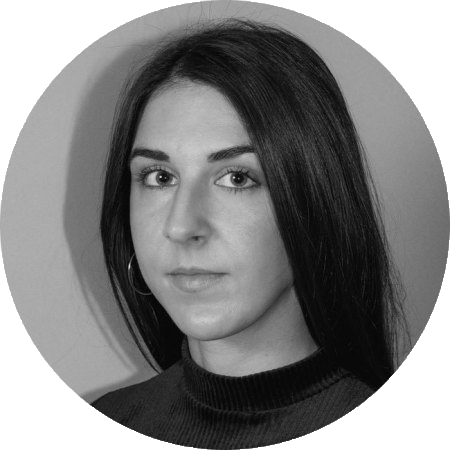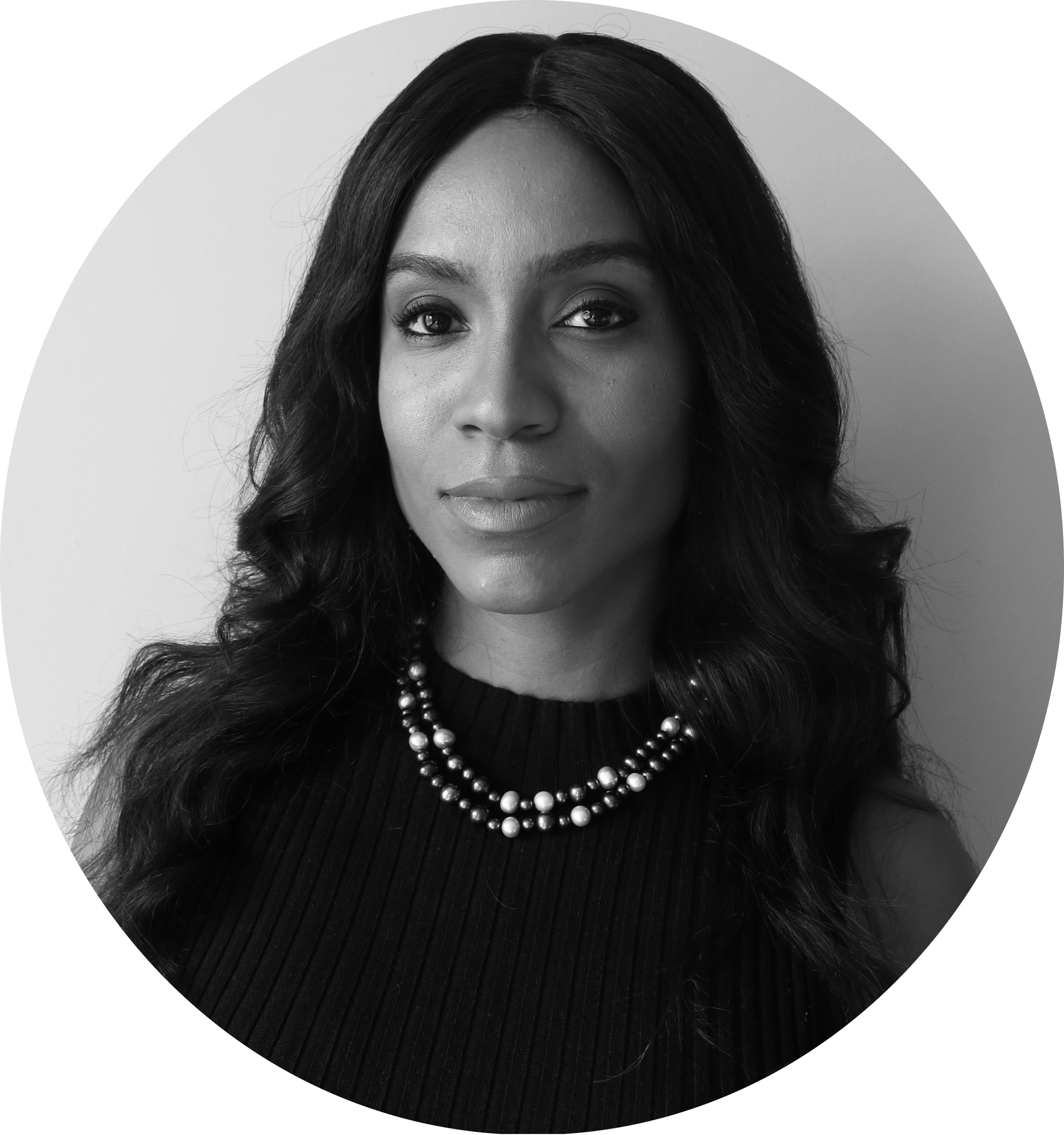Ace Tilton Ratcliff
Disabled journalist and artist Ace Tilton Ratcliff, 33, focuses on disability justice and intersectional feminism where they work towards eradicating discrimination and amplifying marginalized voices. (Intersectional feminism encourages greater inclusivity in the feminist movement by looking beyond issues of gender-based oppression toward all aspects of identity and potential oppression, such as race, class, educational status, sexual identity and religion.)
“I am an ambulatory wheelchair user who was diagnosed with hypermobile Ehlers-Danlos Syndrome, a genetic collagen disorder that causes a plethora of symptoms in each patient. I deal with daily joint dislocations from things like sleeping wrong or sneezing. I also have a number of comorbidities like endometriosis, fibroids (uterine tumors), ovarian cysts, CRPS (complex regional pain syndrome). The list goes on and on,” Ratcliff told MedTruth.
Ratcliff, who’s based in Florida, explains that being a good chronic illness ally means taking a back seat to the people or group you are supporting. In order to uplift, chronic illness allies need to step back, be quiet, and make sure the folks they are supporting are heard and seen.
Intersectional feminism encourages greater inclusivity in the feminist movement by looking beyond issues of gender-based oppression toward all aspects of identity and potential oppression, such as race, class, educational status, sexual identity and religion.
Empathy is a huge component of chronic illness allyship. Putting the needs of a chronically ill person first “without pushing yours” is incredibly important, Ratcliff said.
“It’s really, really important to recognize that what we’re capable of doing on one day might not be the same things we can do on another day—even the next day,” they said. Ratcliff advised able-bodied-folks to surround themselves with other chronically ill people to see the many different ways chronic illness can manifest.
“The more people you know, the more elastic your brain becomes in comprehending the variation in illness,” they said.
Listening to podcasts, reading discourse, sharing art by disabled artists, and taking the time to research about your friends’ chronic illnesses are all suggestions for being a supportive ally.
In order to uplift, chronic illness allies need to step back, be quiet, and make sure the folks they are supporting are heard and seen.
Divya Jindal-Snape
Divya Jindal-Snape has fibromyalgia, a hidden condition involving pain and stiffness all over the body and a wide range of other possible symptoms including sleep issues, fatigue, headaches, anxiety, depression, memory loss, concentration issues, digestive issues, tingling and numbness. Born in India, Jindal-Snape believes that she’s had fibromyalgia since she was a teenager, but wasn’t diagnosed until she was 40 after a lengthy process.
Professor of Education, Inclusion and Life Transitions at the University of Dundee in Scotland, Jindal-Snape researches complex health conditions, disabilities and end-of-life issues. She’s worked on a comic at the university for those living with fibromyalgia and how it impacts their livelihood, their families and the professionals who work with them.
“My best ally is my husband,” Jindal-Snape told MedTruth. “He actively listens to me and tries to support me in whatever is the best way on that day! That flexibility is crucial as people with chronic illness have to take it a day at a time. Due to the support I get from my husband, I have been able to have a fulfilling life personally, professionally and socially.”
Jindal-Snape suggests that folks find a health care practitioner who is an ally.
“If they are on your side, trust and believe you, it’s easier to live with this chronic condition,” she said.
In her research, Jindal-Snape has found strong support networks and trusting relationships were found to be crucial for the wellbeing of people with chronic illness. It’s imperative, she said, that we all have a supportive network, even if someone doesn’t have a disability.
But not everyone has immediate allyship, unfortunately.
“Shouldn’t we be an inclusive society where everyone’s needs are met so I don’t have to say, ‘Look I have a disability and I need help?’ Where everyone has an ally? For someone with a full-on life, it’s easy for me to forget that I have a disability,” she said, while adding that “Some days I can’t forget because it is impossible to carry out even a routine task.”
Chronic illness allyship requires trust, community, advocacy, self-reflection, and change. For folks to be actionable allies, they must invest in marginalized communities. Jindal-Snape suggests that if you think someone needs support, “ask them.”
She believes that in general in society we all need to be more mindful of one another—chronic illness or not.
Chronic illness allyship requires trust, community, advocacy, self-reflection, and change. For folks to be actionable allies, they must invest in marginalized communities. Jindal-Snape suggests that if you think someone needs support, “ask them.”
Ellie
Ellie, 29, from Tacoma, Washington, has fibromyalgia, Crohn’s disease, chronic fatigue syndrome, and GERD (gastroesophageal reflux disease). When Ellie graduated from college, she accepted a job in San Francisco. However, the hours, demands and office culture proved to be too difficult to manage with her conditions.
“Chronically ill people often have to change their behavior so they are believed. I’ve even had friends forget I am sick because of my appearance. This is extremely difficult to manage in an office setting because you have to balance office politics with it and even though the company may excuse you—that doesn’t ensure your co-workers won’t be disgruntled,” Ellie told MedTruth.
Ellie’s first tip for a chronic illness ally is to “listen rather than assume.”
“I’m a very bubbly person, even when I am feeling sick. The difference is my energy will wane much quicker when I am sick but because this is a constant and pretty regular state for me. I want to live as myself when I do have the energy. This is often mistaken for health,” she said.
Ellie encourages able-bodied folks to speak up for those who can’t or don’t have a loud enough voice.
“Don’t speak over us— amplify our voices, our stories. Vote for changes in the industry. Much like the police and justice system, our medical system is very broken and needs a huge overhaul,” she said.
Another way to be a chronic illness ally is through providing funding and sharing resources.
“There are a ton of hurdles for us to make money, keep a job, and not get discriminated against while doing it,” Ellie, who is now self-employed as a sex worker, said. “I have never been happier than when I made this transition. Now I don’t have to worry about what my boss will say or if I will lose my job because of something out of my control.”
“Don’t speak over us— amplify our voices, our stories. Vote for changes in the industry. Much like the police and justice system, our medical system is very broken and needs a huge overhaul.”
Anna Norton
Anna Norton was 27 years old when she was diagnosed with type 1 diabetes. Now, 45 years old and based in Chicago, she manages her diabetes with an insulin pump and a continuous glucose monitor. Norton, who is Cuban-American, says she strives to educate folks of color living with diabetes and is the CEO of DiabetesSisters, a nonprofit dedicated to providing education and support for women living with diabetes.
“A good ally is an asset to anyone living with diabetes. First and foremost, an ally does not pass judgment. They support and lend a shoulder when people with diabetes need it most. I think the best allies support in both good and bad times and take into account not just illness, but other factors that affect a person's life,” Norton told MedTruth
Education is a key factor for able-bodied folks to take into consideration when supporting those with disabilities or chronic illnesses. Norton recalled a story from when her husband—far before he was even her boyfriend—printed out pages of information on insulin pumps to learn more about diabetes.
“It meant a great deal to me to see that he had taken the time to learn about something that was helping me stay healthy,” she said.
"I think the best allies support in both good and bad times and take into account not just illness, but other factors that affect a person's life.”
Charis Hill
In 2013, Sacramento-based activist Charis Hill was diagnosed with axial spondyloarthritis (AxSpA, also known as ankylosing spondylitis) after having low back pain and joint pain for more than 13 years. Hill, who’s now 33, said that they used athleticism and competition as a subconscious coping mechanism to deal with the pain. (Axial spondyloarthritis is an umbrella term for arthritis that primarily affects the spine and sacroiliac joints, resulting in pain in the lower back, hips and buttocks.)
After being diagnosed, Hill told their story on social media and raised thousands of dollars for the Arthritis Foundation, lobbied on Capitol Hill for health care policy, and testified on behalf of a California state senate health care coverage bill (SB 1052) that later passed.
“I often say I was catapulted into chronic disease advocacy and disability activism work and it just grew from there because I kept saying ‘yes’ to opportunities,” Hill told MedTruth.
In 2015, Hill was diagnosed with PTSD, anxiety and depression and in 2020 they were diagnosed as autistic.
How do folks succeed or struggle with chronic illness allyship?
“The absolute worst things to do are to assume what marginalized people need and center yourself in their experience,” Hill said.
Some ways that people overstep when trying to be chronic illness allies is by giving unsolicited medical advice, assuming folks can’t make their own decisions or assuming how chronic illness affects them personally.
“Don't say (that someone) ‘suffers from X disease.’ Say (that someone) ‘lives with X disease/condition,’” they said.
As for what makes a good chronic illness ally, Hill said that folks should listen well and provide tangible help like washing dishes or dropping off groceries. Hill recommends that chronic illness allies learn about diseases from reputable sources, as well as from patient leaders in our communities, such as bloggers and social media leaders.
In the time of COVID-19, Hill said that non-disabled folks can be helpful by wearing masks and remaining physically distanced advocating for remote work, school and telehealth.
“An important additional way to be an ally: follow our lead with what we say the disabled community needs,” they said.
Hill reminds readers that the Americans with Disabilities Act is more than 30 years old and that disability access should not be an afterthought.
“Build accessibility planning into your overall budget and leadership team, just like you do for vendors, security, and cleanup costs. Don't ask disabled people and experts to work for free,” they said.
“Don't say (that someone) ‘suffers from X disease.’ Say (that someone) ‘lives with X disease/condition.’”


